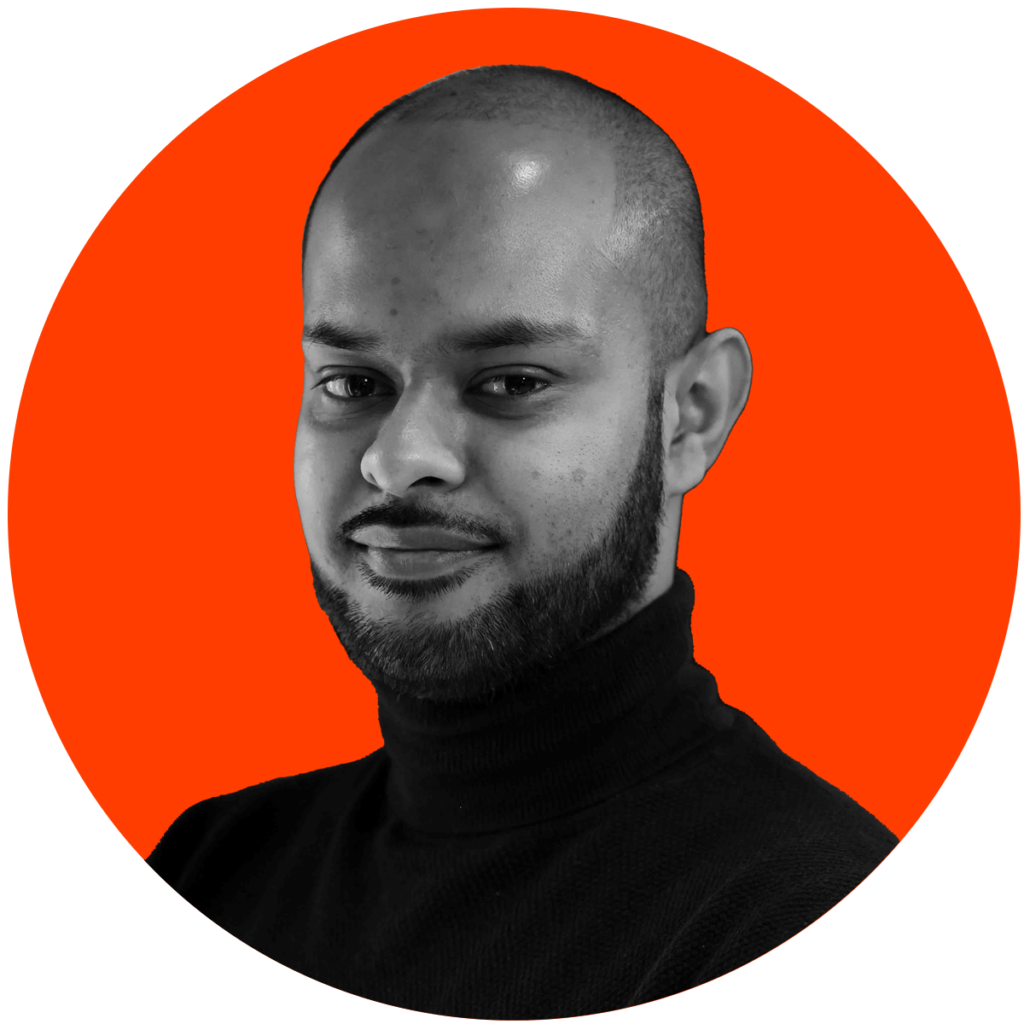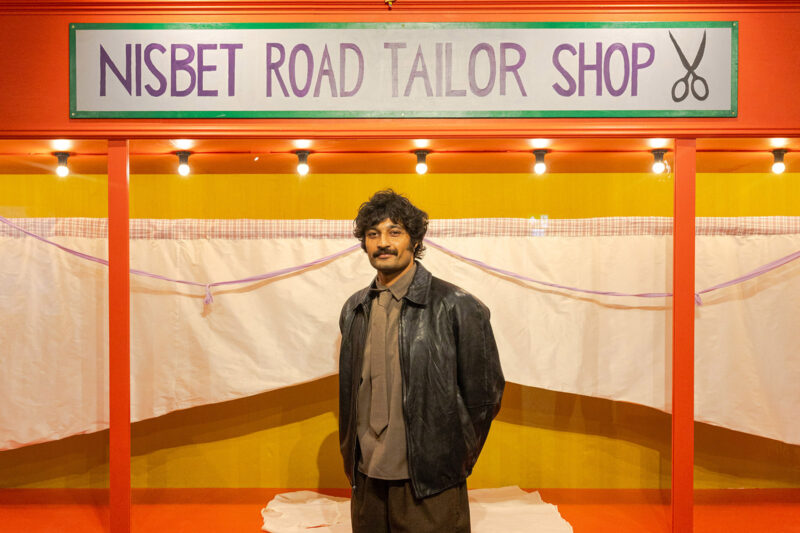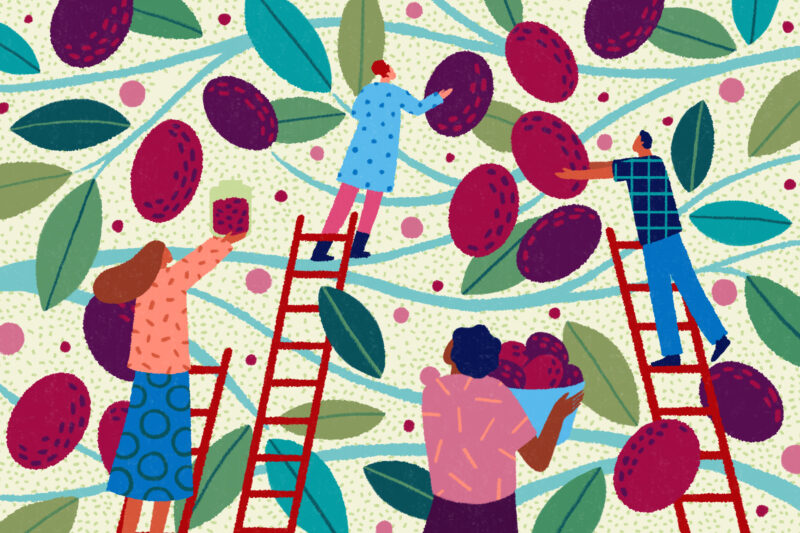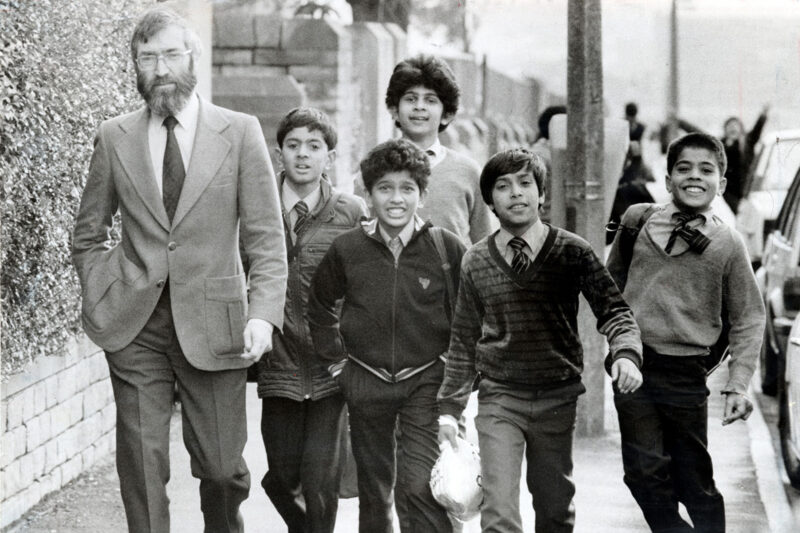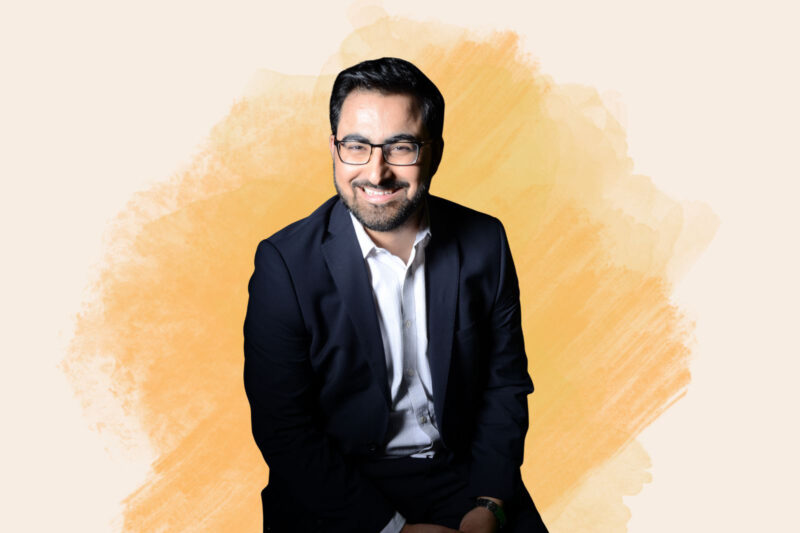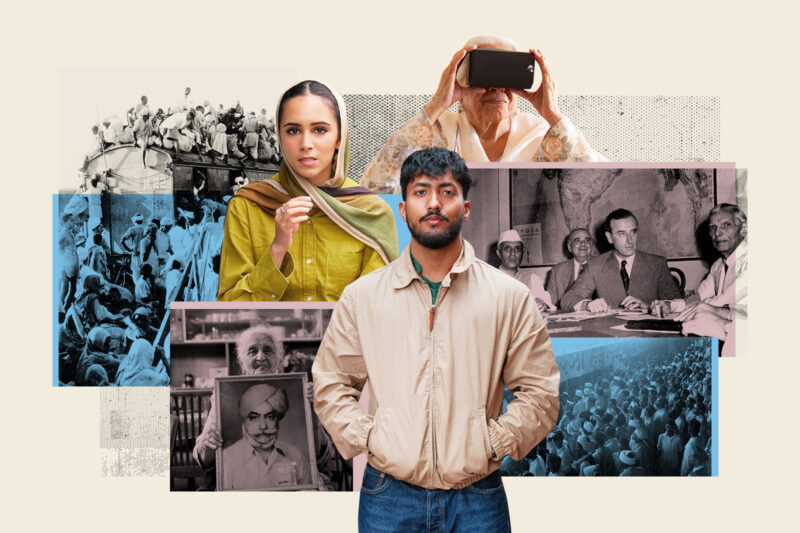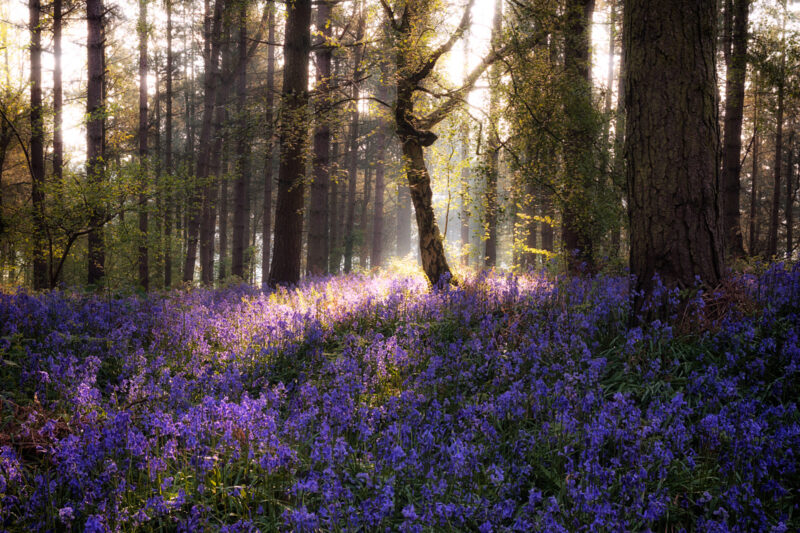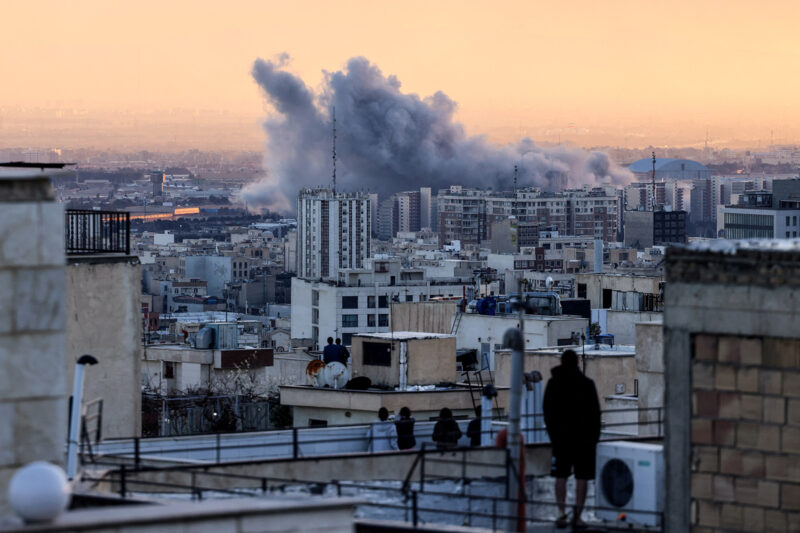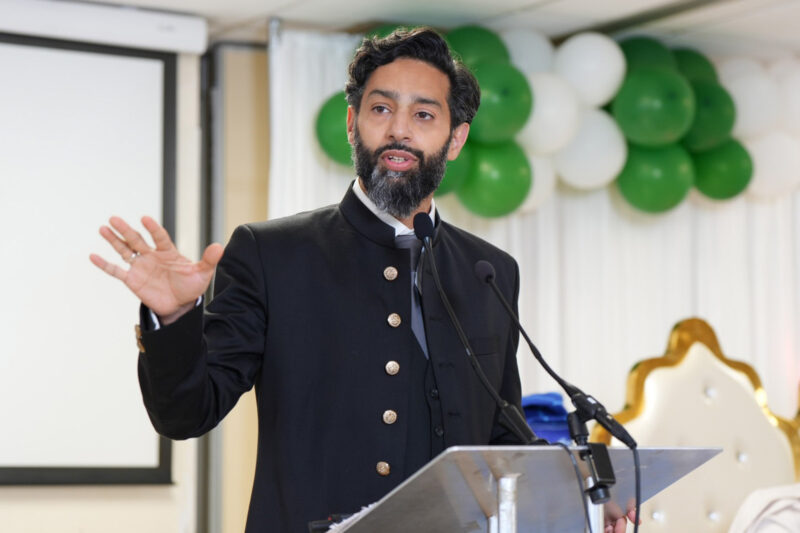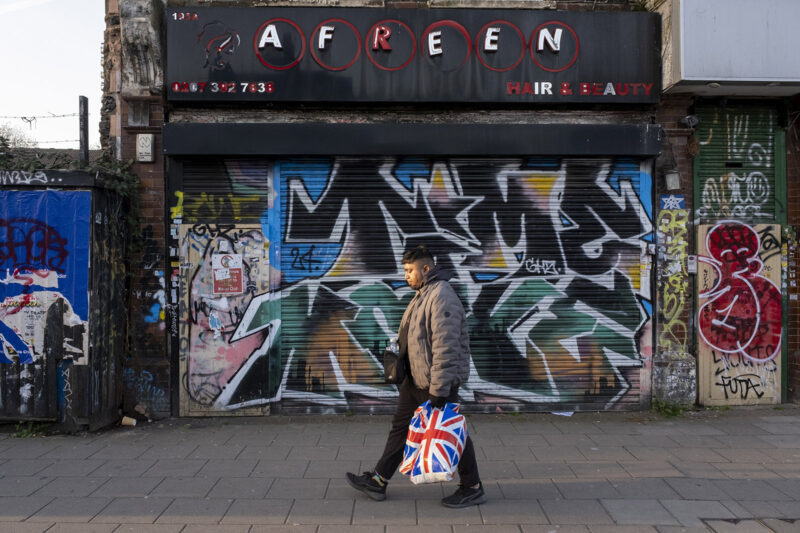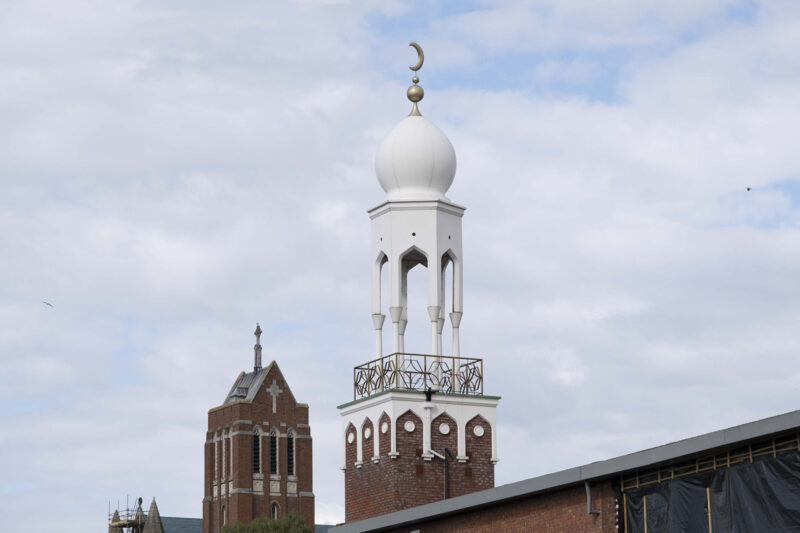Inside Bradford’s thriving Rohingya community
Uprooted from Myanmar and resettled from the refugee camps of Bangladesh, hundreds have made new lives in West Yorkshire
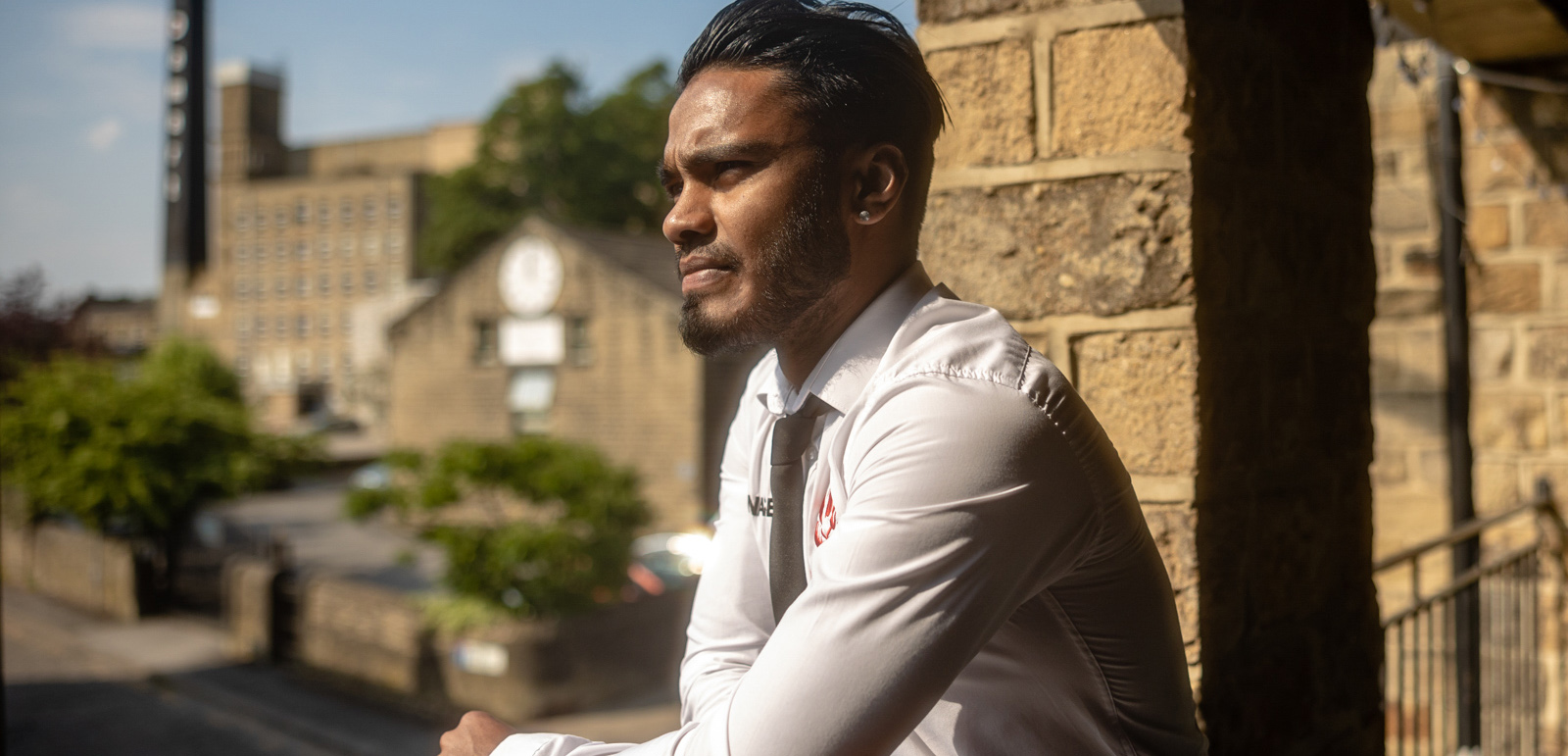
The Sizzling Lounge in Bingley, West Yorkshire, is a testament to a powerful work ethic. Launched during the Covid-19 pandemic, the award-winning restaurant is run by Rohingya refugees who arrived in the Bradford area from camps in Bangladesh as children and had to learn English from scratch.
As customers enter, they walk past a wall celebrating owner Yeasin Mohammed’s achievements: rave reviews, a recent Best Asian Restaurant in Yorkshire award and pictures of him meeting King Charles in December, when his business skills won him an Asian Young Achiever Award.
Mohammed, 27, is part of a 500-strong Rohingya community that has found a sense of home in Bradford. They were given asylum in 2009 after having known only the tumult of being a member of one of the world’s most persecuted ethnic groups.
The majority-Muslim Rohingya were driven from Myanmar, their homeland, to refugee camps in Bangladesh and other neighbouring countries in successive waves from the late 1970s by violent government repression described as “ethnic cleansing” by Human Rights Watch.
Stripped of citizenship, denied basic human rights including freedom to worship and travel, subject to hate speech and pogroms, the Rohingya in Myanmar also faced a series of brutal military campaigns over the decades.
Even in the refugee camps of Bangladesh where Mohammed grew up, his people faced restrictions. They were banned from going to school, working or travelling by authorities who were trying to force them to return to Myanmar. The move to Bradford, while initially challenging, opened his eyes to a life where the most basic human rights were a given — and that could offer a model for helping the Rohingya still stuck in the camps he left.
Mohammed faced racism at school when he arrived in England, but having spent his early years in Bangladesh doing menial labour to support his family, he was determined to succeed. He worked in Indian restaurants and used the skills he picked up to launch The Sizzling Lounge, which he runs with family members, employing half a dozen other Rohingya.
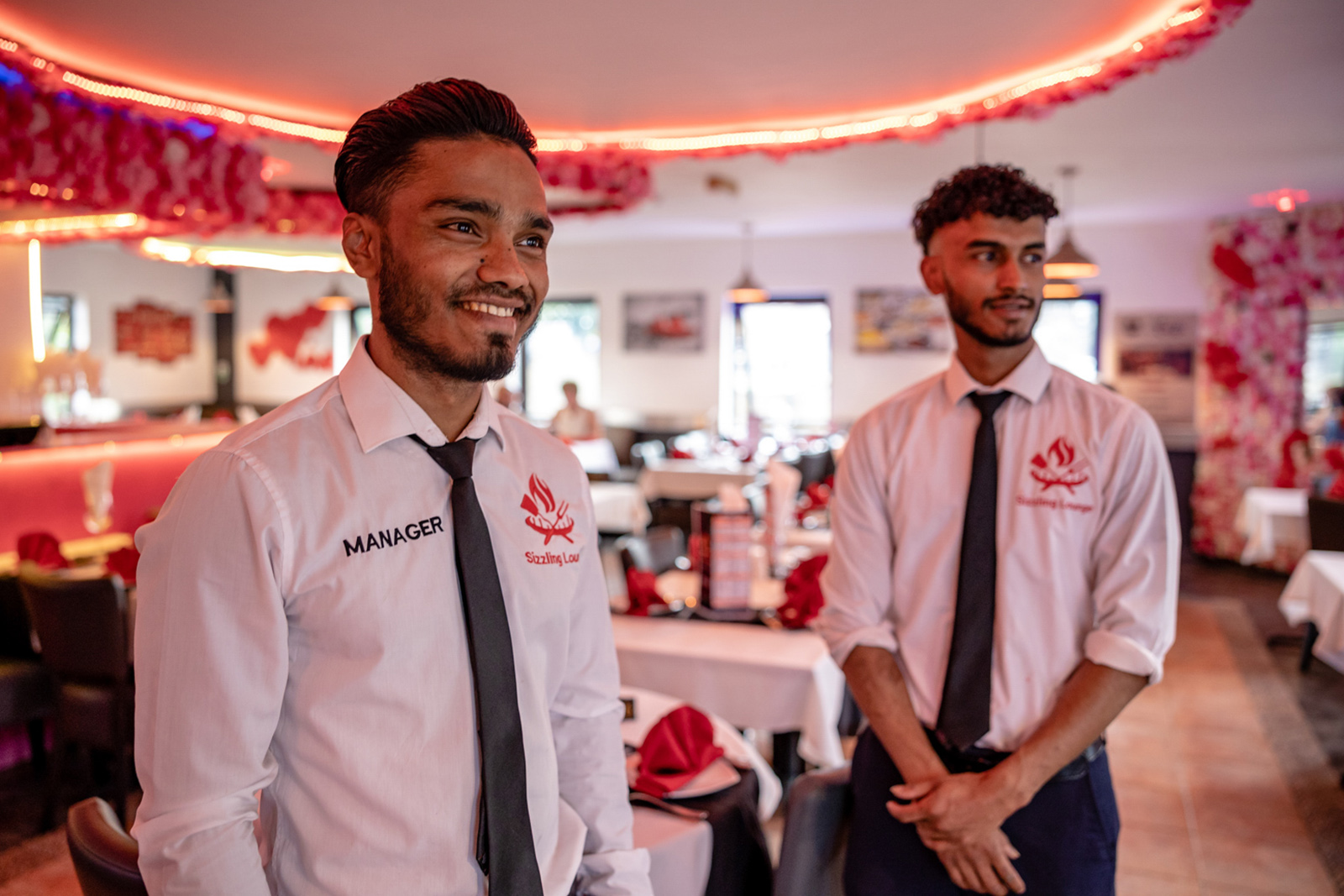
“I was basically like a frozen man, with no education and no English when I came here, but we worked hard and from crossing that language barrier, I’ve got here,” says Mohammed, in a clear Bradford accent.
About one million Rohingya are now estimated to be living in Bangladesh — the world’s largest refugee population. The numbers crossing the border grew dramatically after 2017, when the Myanmar military launched its most brutal campaign against the Muslim minority, including what have been described as “genocidal” massacres, driving more than 700,000 to seek refuge in Bangladesh. It is estimated that about 600,000 remain in Myanmar.
Mohammed recently visited relatives in Bangladesh and was shocked by the conditions in the camps following a series of fires, floods, cyclones and cuts to the food supplied by non-governmental organisations. He believes resettlement in the UK and other countries is the best outcome for refugees in Bangladesh, as long as returning home to Myanmar remains too dangerous to consider.
“Everyone wants to have a nice house, a safe house to sleep in, citizenship. Nobody wants to live how they’re living now,” he says.
“They’re struggling every single day for food, clothes, housing, water. It would be so great if they could get the same chance as us for resettlement. Not just for my family, for any refugee. To have the same level of life we live here. That’s the best we could dream of.”
Bradford has offered its Rohingya residents a chance to live normal lives. Sayed Amin, 24, was on the first plane from Bangladesh to the UK, aged eight, but remembers how restrictive life was in the camps. He could not go to school or even visit the nearby river.
Now Amin, together with his friend Iqbal Mohammed, also 24, runs a Rohingya community group that regularly organises trips to the countryside, including North Yorkshire’s Ingleton waterfalls, the Lake District and Scotland. “This is what we didn’t get in the camp,” he says. “We couldn’t travel anywhere there. It’s not even about the greenery. It’s the freedom.”
The group gathers regularly as a way to keep the community together and ensure that the younger children are taught about their identity. As well as organising trips to the surrounding countryside, they put on community sports days to play football, badminton and cricket, and hold community iftars to break fast together during Ramadan.
Mohammed says one of the goals is to remind younger members of the community that they are from Myanmar and should show pride by learning Rohingya history, even if the country’s rulers have tried to erase their culture through violence and the closure of mosques.
“It’s a tough job getting everyone together but, trust me, the effort is worth it. To see all the community get together and have a nice time makes it feel like we’re all back in Burma,” he says, using the old name for Myanmar.
“Our culture is at risk of going extinct because you have millions of Rohingya who have left their homeland and everyone’s in their own group somewhere else. We’re such a small community here, but we can show the power of being united.
“We have our own culture, our own food, our own traditions. Our situation doesn’t let us express it but it doesn’t mean we don’t feel it.”
The future for the Rohingya in Bangladesh remains uncertain. Stripped of their Myanmar citizenship, they have no legal way to escape the refugee camps. Those who came to Bradford benefited from a resettlement scheme that ran for four years from 2006 before being scrapped by the Bangladeshi government, frustrated that recipient countries had reportedly taken only 920 refugees in that time.
With little prospect of a safe return to Myanmar, the focus is once again on resettling at least some of the Rohingya refugees in Bangladesh. The US has offered to resettle 50,000, but to ease the pressure on the refugee camps other countries will have to step in.
There appears to be little chance of the UK joining such a scheme, given the Conservative government’s increasingly hostile attitude towards refugees and move to shut off virtually all safe and legal routes for people seeking asylum with its recently passed Illegal Migration Act.
Joanna Price, acting coordinator for Bradford City of Sanctuary, says: “It’s great that the gateway protection programme invited the Rohingya over. It’s just a shame that it was so few and a one-off.
“It’s really difficult in this current political environment to continue to welcome people through safe and legal routes.”
The Rohingya community in Bradford seem only too aware of how lucky they were to escape the refugee camps in Bangladesh and are keen to stress how they strive to contribute to their adopted home.
Amin graduated from the University of Bolton with a degree in sports science. He has volunteered as a sports instructor for Bradford council and now is a civil servant for HM Revenue and Customs.
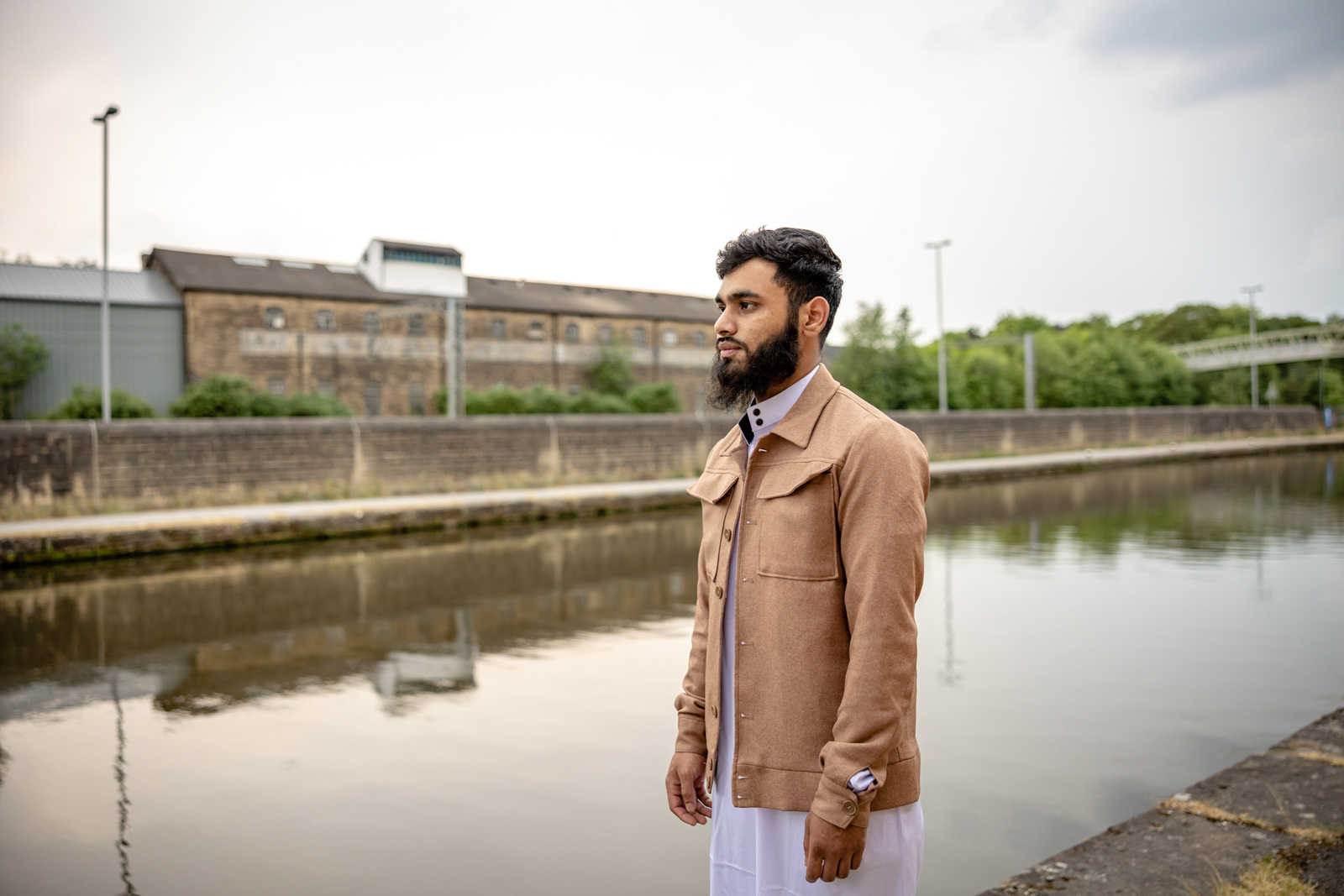
“Look at that one refugee kid you brought here and what he achieved,” he says. “When you give a refugee an opportunity, they don’t take it for granted. I feel like I’ve contributed to the UK, even more than many of those born and bred here.”
Sajida Saj, 28, had missed five years of school when she arrived in the UK from a Bangladesh refugee camp aged 13, speaking no English, and was unable to fulfill her ambition to become a doctor. Saj learnt the language, passed her GCSEs and A-levels, then took a job teaching English to other Rohingya. Now she plans to go to university and is considering studying journalism.
She regularly returns to refugee camps in Bangladesh and sees the potential for Rohingya girls to benefit from the education they are currently denied, if they were allowed to come to the UK with their families.
“Every individual Rohingya who came to the UK is a survivor but in 15 years many of us have come a long way through our determination, and some of the children have become lawyers, nurses, teachers, doctors and businessmen,” says Saj.
“I wanted to become something but I didn’t have the opportunity until I came to the UK. Right now there are a lot of women who want to make something of themselves and do something for others. They just need the chance.
“It would be life-changing for them. Everyone deserves that — to have a better life. I can’t imagine my life now if I’d stayed in the refugee camp.”
 Newsletter
Newsletter

